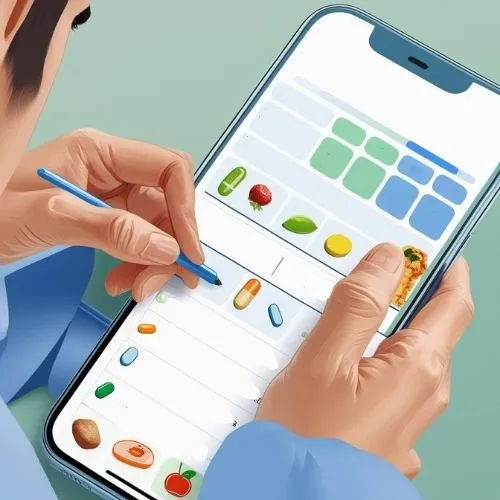Prescription medication is also needed when it comes to the management of health conditions. But you see, what you eat can have a major effect on the working of these medicines. Whether it is added effectiveness or lesser side effects, it makes a big difference to have the right diet. You may be living with diabetes, high blood pressure, cholesterol or even mental health complications and this resource is important to know how your medication interacts with your diet.
This blog addresses the basics of combining a healthy diet with prescription medications. Explains what to take with them, what to avoid eating, and why this combination is essential.
1. Prescription Medications Why Diet Matters
Food will not only nourish your body, but also it will react with medicines in an effective way. There are foods that can enhance or reduce the absorption of a drug and even the adverse side effects. Even render the remedial effects of the drug ineffective. Contrary to that, a healthy diet may help your body recover, minimise side effects, and improve the medication.
For example, taking some medicines on an empty stomach may cause nausea. While others may lose effectiveness without food. Knowledge of these interactions will allow you to improve your treatment plan.
2. Druginteractions of Medication and Diet
These are some of the familiar drug-food drug interactions:
- Cholesterol-lowering drugs (statins): Grapefruit and grapefruit juice should be avoided which stimulates the drug concentration in the blood which may result in toxicity.
- Blood pressure medicines (such as ACE blockers): High amounts of potassium in your diet, such as bananas, oranges, and spinach fruits and vegetables interfere with blood pressure-medication.
- Antidepressants (MAOIs): Antidepressants also react with some high-tyramine foods such as aged cheese, cured meat, and soybeans, which creates the risk of having severe blood pressure.
- Diabetes drugs (such as Metformin): It should be taken with food to lessen audacious side effects and a balanced diet should be used in conjunction with it to assure stability of blood sugar levels.
- Antibiotics: It is important to spread the consumption of antibiotics as dairy products can affect their absorption.
- Before you take medications, always read the labels and talk to your doctor or your pharmacist regarding a possible interaction between food and medicine.
3. Construction of a Medication-Friendly Diet
The one-size-fits-all approach to medication diet does not exist, yet these are some of the general principles that most individuals need when it comes to prescription drugs:
- Drink water: Drinking water helps the body to digest and metabolise drugs as well as get rid of them.
- Balance Macronutrients: Eat a good variety of lean proteins, whole grain, and healthy fats to provide your body with the nutrients it needs and to help you in your medication.
- Fibre Smart: Fibre, great in the gut, can decrease the absorption of some medication with too much of a good thing. When you need to, space out high-fibre foods and your medication.
- Watch Alcohol Consumption: Alcohol affects lots of drugs and makes them less effective or increases adverse effects.
- Keep the consistency: In case your drugs work best with meals, ensure to keep regular meal times, as this will ensure that you benefit most out of the medication you take.

4. The Secrets to Safely Choosing the Combinations of Food with Medications
- Use a Medication Journal: What you consume, the time you take medications, and the side-effects you encounter. You could use this to determine patterns and perform a tune-up.
- Talk to a Registered Dietitian: Going on long-term medication, a dietitian can craft up a meal plan that suits you and mix it with the medication effects in mind.
- Utilise Medication Apps: A large number of health apps even alert you on when to take your medicine as well as warn you on possible food interactions.
- Look at Food Labels: Be on the lookout on ingredients such as caffeine, high sodium or artificial additives as that will not go well with medication.
5. When to Talk with Your Doctor
At other times, when you develop some abnormal symptoms, like nausea, dizziness, faster heartbeat or the medication you are taking has stopped acting on you as usual, it may be your diet. Do not alter your dose or eating habits significantly on your own or without health professional supervision.
Do not forget that you have a doctor, pharmacist and nutritionist on your health care team. Notify them on everything about supplements and diet adjustments that you take.
Final Thoughts
Healthy diet and prescription drugs ought to be used hand in hand. Food and medication are not two different parts of your health plan; they are partners; you have to treat them like that. In the right balance, you can be able to get the effectiveness of your treatment and prevent any bad side effects as well as improving your general health.

Leave a Reply